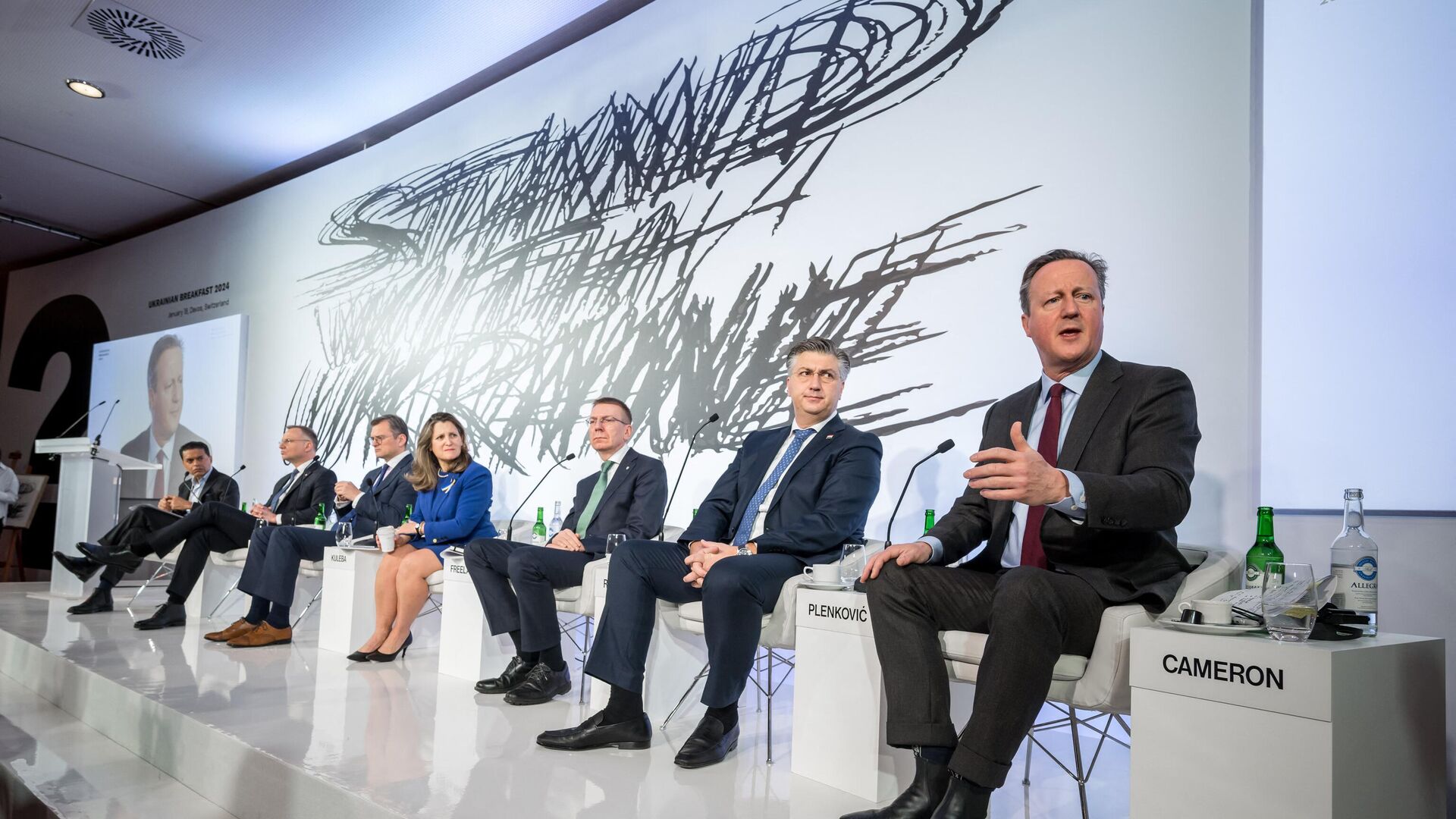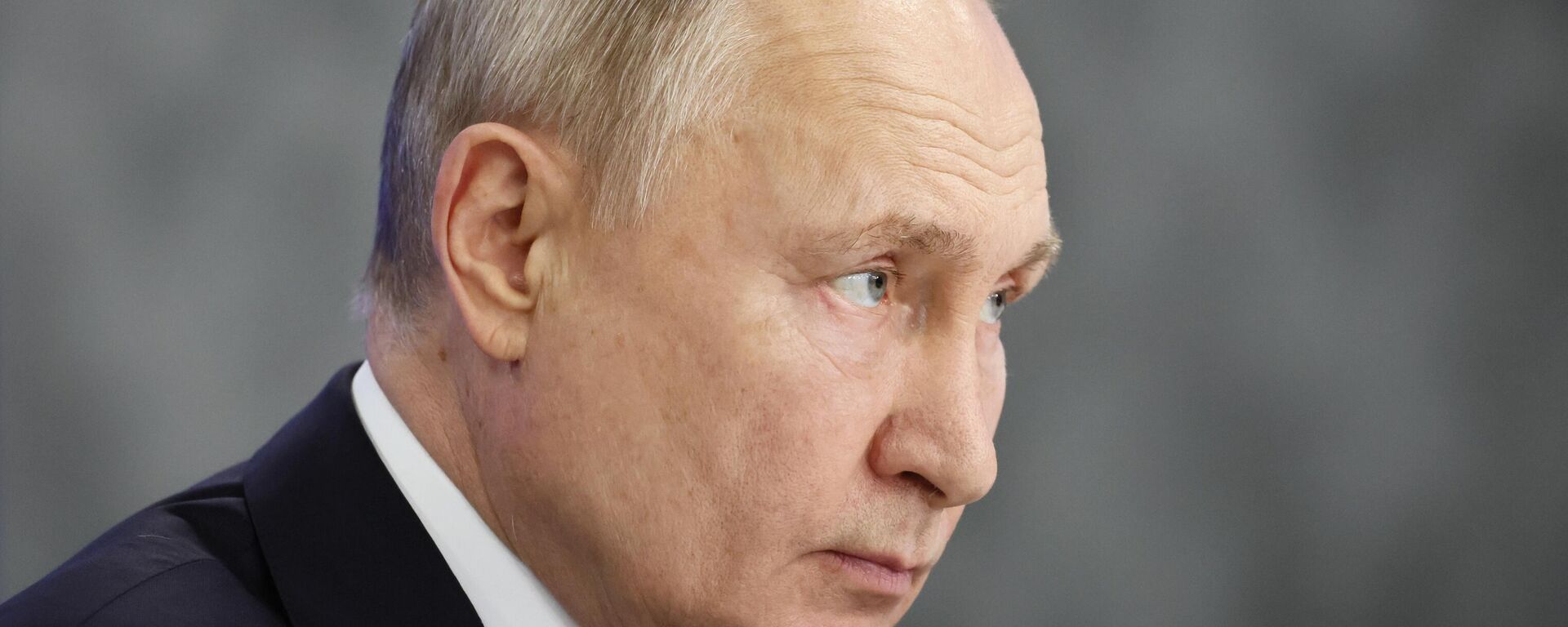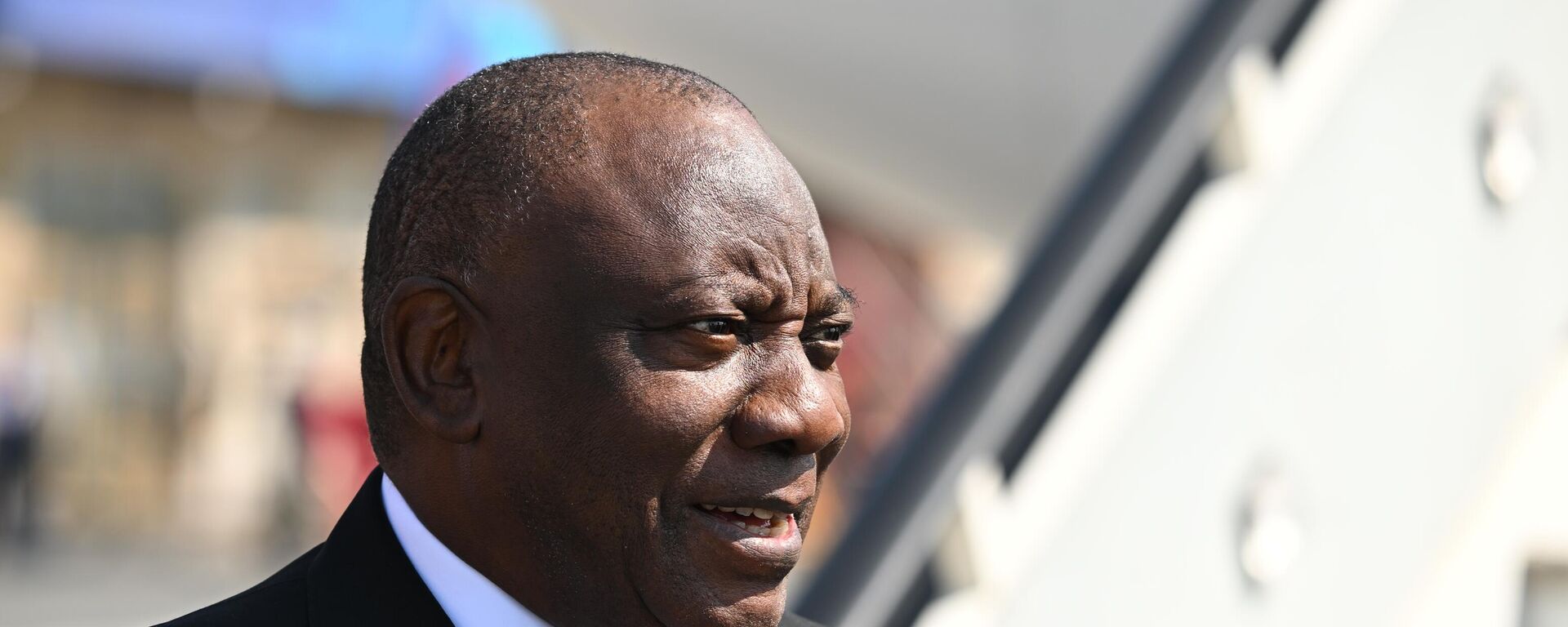https://en.sputniknews.africa/20240131/why-west-ignores-african-brazilian-initiatives-on-ukraine-crisis-during-peace-formula-meetings-1064858514.html
Why West Ignores African, Brazilian Initiatives on Ukraine Crisis During 'Peace Formula' Meetings
Why West Ignores African, Brazilian Initiatives on Ukraine Crisis During 'Peace Formula' Meetings
Sputnik Africa
Earlier on Wednesday, Russian Foreign Minister Sergey Lavrov noted that the initiatives of Brazil and African countries, led by South Africa, on the settlement... 31.01.2024, Sputnik Africa
2024-01-31T18:19+0100
2024-01-31T18:19+0100
2024-01-31T18:22+0100
russia's special operation in ukraine
cyril ramaphosa
south africa
brazil
ukraine
ukraine crisis
african russia-ukraine peace initiative
peace
peace talks
volodymyr zelensky
https://cdn1.img.sputniknews.africa/img/07e8/01/1f/1064859007_0:66:3072:1794_1920x0_80_0_0_96292dc76996ae80fb38f7de59ec315b.jpg
The apparent lack of acknowledgment by the West of the initiatives put forth by South Africa and Brazil, aimed at bringing a resolution to the protracted Russia-Ukraine conflict, could be attributed to the power dynamics within the international system, Dr. Anne Abaho, an esteemed international relations and security studies lecturer at Nkumba University in Uganda, shared in an interview with Sputnik Africa.In June 2023, a delegation representing South Africa, Comoros, Zambia, Senegal, Egypt, Uganda and Congo visited Kiev and Moscow to promote an African peace initiative on the Russia-Ukraine conflict. On behalf of the delegation, South African President Cyril Ramaphosa outlined a plan of 10 principles that could form the basis of a peace process.Prior to this African initiative, in early 2023, Brazil presented a proposal to create a "G20 for Peace" – a group of countries strong enough to be respected at the negotiating table, but still considered by some to be neutral in the conflict between Russia and Ukraine.Dr. Abaho suggested that the West, driven by historical motives and its desire for supremacy, may be inclined towards seeking a complete victory over Russia, rather than seeking a sustainable and inclusive peace settlement.Furthermore, Dr. Abaho echoed Russian Minister of Foreign Affairs Sergey Lavrov's sentiments, agreeing that the exclusion of the African peace initiatives from discussions reflects elements of colonialism and imperialism.She also drew attention to the historical and structural factors that have shaped the relationship between the West and the developing world.In the context of South Africa's growing influence on the global stage, Dr. Abaho emphasized the country's increasing weight in international affairs, evident in its recent appeal to the International Court of Justice regarding Israel's actions in the Palestinian Gaza Strip, where more than 26,000 civilians have been killed in Israeli attacks, according to the enclave's authorities.Last Friday, the ICJ ruled on interim measures in South Africa's case against Israel for alleged genocide in Gaza. The court ordered Israel to take urgent measures to prevent acts of genocide and to ensure the flow of humanitarian aid into the enclave. At the same time, the ICJ did not order an immediate ceasefire in Gaza.Dr. Abaho emphasized the critical importance of recognizing and incorporating the perspectives originating from Africa and the Global South into deliberations concerning the Ukraine conflict. One of the central pillars of Dr. Abaho's proposed steps to achieve a more sustainable peace is a call for swift and unequivocal action by the United Nations. She stressed the urgency for the United Nations to swiftly condemn all parties that directly or indirectly support conflicts around the world.
https://en.sputniknews.africa/20240116/1064650888.html
https://en.sputniknews.africa/20240131/sa-president-warns-of-possible-foreign-meddling-in-2024-elections-over-icj-case-against-israel-1064850124.html
south africa
brazil
ukraine
Sputnik Africa
feedback@sputniknews.com
+74956456601
MIA „Rossiya Segodnya“
2024
Muhammad Nooh Osman
https://cdn1.img.sputniknews.africa/img/07e7/04/0a/1058467512_0:0:1280:1280_100x100_80_0_0_ec723833bcbfcaed2e21952965ad99e4.jpg
Muhammad Nooh Osman
https://cdn1.img.sputniknews.africa/img/07e7/04/0a/1058467512_0:0:1280:1280_100x100_80_0_0_ec723833bcbfcaed2e21952965ad99e4.jpg
News
en_EN
Sputnik Africa
feedback@sputniknews.com
+74956456601
MIA „Rossiya Segodnya“
Sputnik Africa
feedback@sputniknews.com
+74956456601
MIA „Rossiya Segodnya“
Muhammad Nooh Osman
https://cdn1.img.sputniknews.africa/img/07e7/04/0a/1058467512_0:0:1280:1280_100x100_80_0_0_ec723833bcbfcaed2e21952965ad99e4.jpg
cyril ramaphosa, south africa, brazil, ukraine, ukraine crisis, african russia-ukraine peace initiative, peace, peace talks, volodymyr zelensky, vladimir putin
cyril ramaphosa, south africa, brazil, ukraine, ukraine crisis, african russia-ukraine peace initiative, peace, peace talks, volodymyr zelensky, vladimir putin
Why West Ignores African, Brazilian Initiatives on Ukraine Crisis During 'Peace Formula' Meetings
18:19 31.01.2024 (Updated: 18:22 31.01.2024) Muhammad Nooh Osman
Writer/Editor
Earlier on Wednesday, Russian Foreign Minister Sergey Lavrov noted that the initiatives of Brazil and African countries, led by South Africa, on the settlement of the conflict in Ukraine are not even examined by the West during the meetings on Zelensky's "peace formula".
The apparent lack of acknowledgment by the West of the
initiatives put forth by South Africa and Brazil, aimed at bringing a resolution to the protracted Russia-Ukraine conflict, could be attributed to the power dynamics within the international system,
Dr. Anne Abaho, an esteemed international relations and security studies lecturer at Nkumba University in Uganda, shared in an interview with
Sputnik Africa.
In June 2023, a delegation representing South Africa, Comoros, Zambia, Senegal, Egypt, Uganda and Congo visited Kiev and Moscow to promote an
African peace initiative on the Russia-Ukraine conflict. On behalf of the delegation, South African President Cyril Ramaphosa outlined a plan of 10 principles that could form the basis of a peace process.
Prior to this African initiative, in early 2023, Brazil presented a proposal to create a "G20 for Peace" – a group of countries strong enough to be respected at the negotiating table, but still considered by some to be neutral in the conflict between Russia and Ukraine.
Dr. Abaho suggested that the West, driven by historical motives and its desire for supremacy, may be inclined towards seeking a complete victory over Russia, rather than seeking a sustainable and inclusive peace settlement.
"The West would have wanted to use power to gain victory over Russia and bring it down completely, which would be an attainment of a mission it wanted to realize 40 years back," she said. "So that's why I'm saying that for the Western world, the only peace that matters is victory over Russia, because victory over Russia would mean they now have a lee-way, they have an open space from which they can make recoveries of the investments into the war."
Furthermore, Dr. Abaho echoed Russian Minister of Foreign Affairs Sergey Lavrov's
sentiments, agreeing that the exclusion of the African peace initiatives from discussions reflects elements of colonialism and imperialism.
She also drew attention to the historical and structural factors that have shaped the relationship between the West and the developing world.
"They still look at the developing world as it still needs to be civilized. It still needs to be cleaned, it still needs to be taught what is right from wrong and what is left from right," the African expert said.
In the context of South Africa's growing influence on the global stage, Dr. Abaho emphasized the country's increasing weight in international affairs, evident in its recent appeal to the International Court of Justice regarding Israel's actions in the Palestinian Gaza Strip, where more than 26,000 civilians have been killed in Israeli attacks, according to the enclave's authorities.
Last Friday, the ICJ ruled on interim measures in South Africa's case against Israel for alleged genocide in Gaza. The court ordered Israel to take urgent measures to prevent acts of genocide and to ensure the flow of humanitarian aid into the enclave. At the same time, the ICJ did not order an immediate ceasefire in Gaza.
"Whether the West likes it or not, I think South Africa has indicated that it has the potential, it has the capacity, and it is ready to at least speak," Dr. Abaho said.
Dr. Abaho emphasized the critical importance of recognizing and incorporating the perspectives originating from Africa and the Global South into deliberations concerning the Ukraine conflict.
"To dismiss entirely the view coming from Africa is basically to take away 54 countries from the African continent and many more others that are coming from the Global South," she said. "The approach that should be taken, the steps that could be taken are, first of all, the need to realize that the Western countries are not the only ones that feel the pinch of this conflict."
One of the central pillars of Dr. Abaho's proposed steps to achieve a more sustainable peace is a call for swift and unequivocal action by the United Nations. She stressed the urgency for the United Nations to swiftly condemn all parties that directly or indirectly
support conflicts around the world.
"There should be condemnation of those who are supporting the conflicts around the world, especially when it is a bigger power against the other, or even when it is the formation of alliances, for offensive purposes, as the case is in Ukraine and the USA against Russia, or Israel supported by the USA against Palestine," the Ugandan academician suggested.





